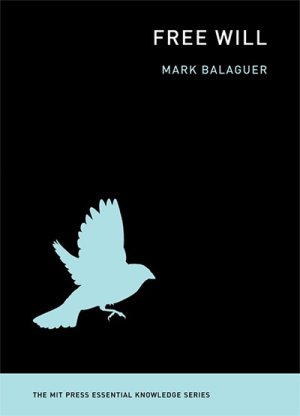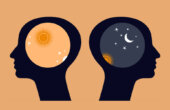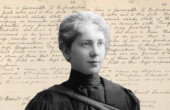Why the Classical Argument Against Free Will Is a Failure

In the last several years, a number of prominent scientists have claimed that we have good scientific reason to believe that there’s no such thing as free will — that free will is an illusion. If this were true, it would be less than splendid. And it would be surprising, too, because it really seems like we have free will. It seems that what we do from moment to moment is determined by conscious decisions that we freely make.
We need to look very closely at the arguments that these scientists are putting forward to determine whether they really give us good reason to abandon our belief in free will. But before we do that, it would behoove us to have a look at a much older argument against free will — an argument that’s been around for centuries.

The older argument against free will is based on the assumption that determinism is true. Determinism is the view that every physical event is completely caused by prior events together with the laws of nature. Or, to put the point differently, it’s the view that every event has a cause that makes it happen in the one and only way that it could have happened.
If determinism is true, then as soon as the Big Bang took place 13 billion years ago, the entire history of the universe was already settled. Every event that’s ever occurred was already predetermined before it occurred. And this includes human decisions. If determinism is true, then everything you’ve ever done — every choice you’ve ever made — was already predetermined before our solar system even existed. And if this is true, then it has obvious implications for free will.
Suppose that you’re in an ice cream parlor, waiting in line, trying to decide whether to order chocolate or vanilla ice cream. And suppose that when you get to the front of the line, you decide to order chocolate. Was this choice a product of your free will? Well, if determinism is true, then your choice was completely caused by prior events. The immediate causes of the decision were neural events that occurred in your brain just prior to your choice. But, of course, if determinism is true, then those neural events that caused your decision had physical causes as well; they were caused by even earlier events — events that occurred just before they did. And so on, stretching back into the past. We can follow this back to when you were a baby, to the very first events of your life. In fact, we can keep going back before that, because if determinism is true, then those first events were also caused by prior events. We can keep going back to events that occurred before you were even conceived, to events involving your mother and father and a bottle of Chianti.
If determinism is true, then as soon as the Big Bang took place 13 billion years ago, the entire history of the universe was already settled.
So if determinism is true, then it was already settled before you were born that you were going to order chocolate ice cream when you got to the front of the line. And, of course, the same can be said about all of our decisions, and it seems to follow from this that human beings do not have free will.
Let’s call this the classical argument against free will. It proceeds by assuming that determinism is true and arguing from there that we don’t have free will.
There’s a big problem with the classical argument against free will. It just assumes that determinism is true. The idea behind the argument seems to be that determinism is just a commonsense truism. But it’s actually not a commonsense truism. One of the main lessons of 20th-century physics is that we can’t know by common sense, or by intuition, that determinism is true. Determinism is a controversial hypothesis about the workings of the physical world. We could only know that it’s true by doing some high-level physics. Moreover — and this is another lesson of 20th-century physics — as of right now, we don’t have any good evidence for determinism. In other words, our best physical theories don’t answer the question of whether determinism is true.
During the reign of classical physics (or Newtonian physics), it was widely believed that determinism was true. But in the late 19th and early 20th centuries, physicists started to discover some problems with Newton’s theory, and it was eventually replaced with a new theory — quantum mechanics. (Actually, it was replaced by two new theories, namely, quantum mechanics and relativity theory. But relativity theory isn’t relevant to the topic of free will.) Quantum mechanics has several strange and interesting features, but the one that’s relevant to free will is that this new theory contains laws that are probabilistic rather than deterministic. We can understand what this means very easily. Roughly speaking, deterministic laws of nature look like this:
If you have a physical system in state S, and if you perform experiment E on that system, then you will get outcome O.
But quantum physics contains probabilistic laws that look like this:
If you have a physical system in state S, and if you perform experiment E on that system, then there are two different possible outcomes, namely, O1 and O2; moreover, there’s a 50 percent chance that you’ll get outcome O1 and a 50 percent chance that you’ll get outcome O2.
It’s important to notice what follows from this. Suppose that we take a physical system, put it into state S, and perform experiment E on it. Now suppose that when we perform this experiment, we get outcome O1. Finally, suppose we ask the following question: “Why did we get outcome O1 instead of O2?” The important point to notice is that quantum mechanics doesn’t answer this question. It doesn’t give us any explanation at all for why we got outcome O1 instead of O2. In other words, as far as quantum mechanics is concerned, it could be that nothing caused us to get result O1; it could be that this just happened.
Now, Einstein famously thought that this couldn’t be the whole story. You’ve probably heard that he once said that “God doesn’t play dice with the universe.” What he meant when he said this was that the fundamental laws of nature can’t be probabilistic. The fundamental laws, Einstein thought, have to tell us what will happen next, not what will probably happen, or what might happen. So Einstein thought that there had to be a hidden layer of reality, below the quantum level, and that if we could find this hidden layer, we could get rid of the probabilistic laws of quantum mechanics and replace them with deterministic laws, laws that tell us what will happen next, not just what will probably happen next. And, of course, if we could do this — if we could find this hidden layer of reality and these deterministic laws of nature — then we would be able to explain why we got outcome O1 instead of O2.
But a lot of other physicists — most notably, Werner Heisenberg and Niels Bohr — disagreed with Einstein. They thought that the quantum layer of reality was the bottom layer. And they thought that the fundamental laws of nature — or at any rate, some of these laws — were probabilistic laws. But if this is right, then it means that at least some physical events aren’t deterministically caused by prior events. It means that some physical events just happen. For instance, if Heisenberg and Bohr are right, then nothing caused us to get outcome O1 instead of O2; there was no reason why this happened; it just did.
The debate between determinists like Einstein and indeterminists like Heisenberg and Bohr has never been settled.
The debate between Einstein on the one hand and Heisenberg and Bohr on the other is crucially important to our discussion. Einstein is a determinist. If he’s right, then every physical event is predetermined — or in other words, completely caused by prior events. But if Heisenberg and Bohr are right, then determinism is false. On their view, not every event is predetermined by the past and the laws of nature; some things just happen, for no reason at all. In other words, if Heisenberg and Bohr are right, then indeterminism is true.
And here’s the really important point for us. The debate between determinists like Einstein and indeterminists like Heisenberg and Bohr has never been settled. We don’t have any good evidence for either view. Quantum mechanics is still our best theory of the subatomic world, but we just don’t know whether there’s another layer of reality, beneath the quantum layer. And so we don’t know whether all physical events are completely caused by prior events. In other words, we don’t know whether determinism or indeterminism is true. Future physicists might be able to settle this question, but as of right now, we don’t know the answer.
But now notice that if we don’t know whether determinism is true or false, then this completely undermines the classical argument against free will. That argument just assumed that determinism is true. But we now know that there is no good reason to believe this. The question of whether determinism is true is an open question for physicists. So the classical argument against free will is a failure — it doesn’t give us any good reason to conclude that we don’t have free will.
Despite the failure of the classical argument, the enemies of free will are undeterred. They still think there’s a powerful argument to be made against free will. In fact, they think there are two such arguments. Both of these arguments can be thought of as attempts to fix the classical argument, but they do this in completely different ways.
The first new-and-improved argument against free will — which is a scientific argument — starts with the observation that it doesn’t matter whether the full-blown hypothesis of determinism is true because it doesn’t matter whether all events are predetermined by prior events. All that matters is whether our decisions are predetermined by prior events. And the central claim of the first new-and-improved argument against free will is that we have good evidence (from studies performed by psychologists and neuroscientists) for thinking that, in fact, our decisions are predetermined by prior events.
The second new-and-improved argument against free will — which is a philosophical argument, not a scientific argument — relies on the claim that it doesn’t matter whether determinism is true because indeterminism is just as incompatible with free will as determinism is. The argument for this is based on the claim that if our decisions aren’t determined, then they aren’t caused by anything, which means that they occur randomly. And the central claim of the second new-and-improved argument against free will is that if our decisions occur randomly, then they just happen to us, and so they’re not the products of our free will.
My own view is that neither of these new-and-improved arguments succeeds in showing that we don’t have free will. But it takes a lot of work to undermine these two arguments. In order to undermine the scientific argument, we need to explain why the relevant psychological and neuroscientific studies don’t in fact show that we don’t have free will. And in order to undermine the philosophical argument, we need to explain how a decision could be the product of someone’s free will — how the outcome of the decision could be under the given person’s control — even if the decision wasn’t caused by anything.
So, yes, this would all take a lot of work. Maybe I should write a book about it.
Mark Balaguer is Professor in the Department of Philosophy at California State University, Los Angeles. He is the author of several books, including “Free Will,” from which this article is adapted.



